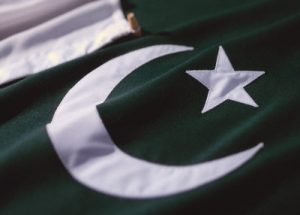After many promises, the Pakistan Democratic Movement (PDM), a group of 11 political parties against the Pakistan Tehreek-e-Insaf (PTI)’s government, has failed to announce its long march plans to topple the central government.
In this regard, the Lahore rally in December represented a major setback for the PDM, revealing underlying tensions in the movement itself. For the PDM, it’s all downhill from here on.
There are clear indications that the Pakistan Peoples Party (PPP), which rules the province of Sindh, is not yet ready to participate in a long march and resigning from the provincial assembly to showcase its resolve against the government. One of the key reasons for that is the party leadership is not sure whether other political parties, particularly the Pakistan Muslim League-Nawaz (PML-N) have the same resolve. Simply put, PPP’s leadership has a lot at stake if they go through with the threat of resignations. PPP’s political survival rests with the party’s presence in power rather than outside the power even if that is at the provincial level.
It shouldn’t be forgotten that the PPP has vowed to fight against the federal government’s alleged plans to roll back the 18th amendment of the constitution which offers provinces resources from the central government’s budget. This can only happen if the PPP remains in power. Moreover, if PPP’s provincial government resigns from Sindh, they may not be able to come back to power anytime soon as the ruling party continues to encroach in its traditional sphere of influence in rural and urban Sindh. If the PPP decides to leave the Sindh government, PTI and other smaller regional parties will use all available political and constitutional means to keep PPP out of power.
For the PPP, the leader of the PML-N, Nawaz Sharif, has made it very difficult for them to support the PDM. Sharif, in his speeches from London, has attacked the military’s current leadership, by accusing the army chief of removing his government, forcing the judiciary, and rigging the 2018 elections to bring to power the current government. PPP’s leadership has been sitting on the sidelines of the PDM as Sharif has made the entire show about his politics.
Arguably, Sharif has gone for the extreme position to make a case for his own return to power at some point in the future. It is not a secret anymore that Sharif’s chances of returning to power are nil as long as the current civil-military leadership remains in power. And the current setup is not likely to go away soon: After the retirement of Army Chief General Qamar Javed Bajwa, the current head of the Inter-Services Intelligence (ISI), General Faiz Hameed, is likely to become the next chief of the military. Sharif has accused the Bajwa-Hameed duo as behind his political demise and perhaps sees them as a threat as far as his return to power is concerned.
It is a game that PPP understands very well. It should not come as a surprise that PPP’s leadership has decided to consider the option of resignation from assemblies only if Sharif returns from London to oversee all of PDM’s long march plans.
PPP and PML-N have a long history of distrust and it continues to grow. In 2018, Asif Ali Zardari who now serves as the president of PPP participated in a rally against the PML-N government in Punjab and threatened to topple the party’s government in the Balochistan province. Reminding Nawaz Sharif of his loyalty to the country, Zardari said that “You (Nawaz) had taken the oath of prime minister and you are still bound by this oath. But you are trying to weaken the country.” In 2018, Sharif also accused Zardari of toppling his party’s provincial government in Balochistan in an effort to get PPP more senators elected with the support of Balochistan lawmakers.
It is clear that PPP is not going to resign from assemblies or boycott the incoming senate elections under the PDM’s platform as that would mean losing a great deal of political and constitutional leverage in the months to come. A senior PPP leader recently questioned the logic in resigning from assemblies: “What do we have in hand after quitting the parliament?” adding “Why we would resign from assemblies on the nod of someone?”
After months of threats of not participating in the senate polls, both PPP and PML-N are preparing to take part in the process. For now, PPP appears to have survived PMLN’s ploy to get it further isolated politically by submitting resignations and boycotting the upcoming senate polls. However, it also means that the PPP and PML-N’s alliance against the government may very well be over and the PDM’s platform will have minimal political value going forward.

































